Back in the 1960’s and early 1970’s the cool thing to own was a grey Mann Grundig track suit top, but even cooler was a black Velotel Tom Simpson top. Both were an indication that you had been to Gent and possibly raced there… or knew somebody who had got them for you. Such things were not available in any British bike shop. If you had visited, the chances were that you would have stayed at ‘Fat’ Albert Beurick’s Café Den Engel, his later joint-venture with Simpson the five miles out-of-town Velotel Tom Simpson motel, or St David’s Guest House run by Mrs Deene right in the very heart of the historic old centre of Gent.
Like ‘Fat Albert’ who died in 2009 aged 72, the Café Den Engel in Dendermondesteenweg and the knacker’s yard behind it are now long gone, a block of flats now stands in its place, however after many years of neglect Mrs Deene’s in Sint-Michiels Straat still stands, bought and completely refurbished by a lady artist, Nina Balthau a few years ago.
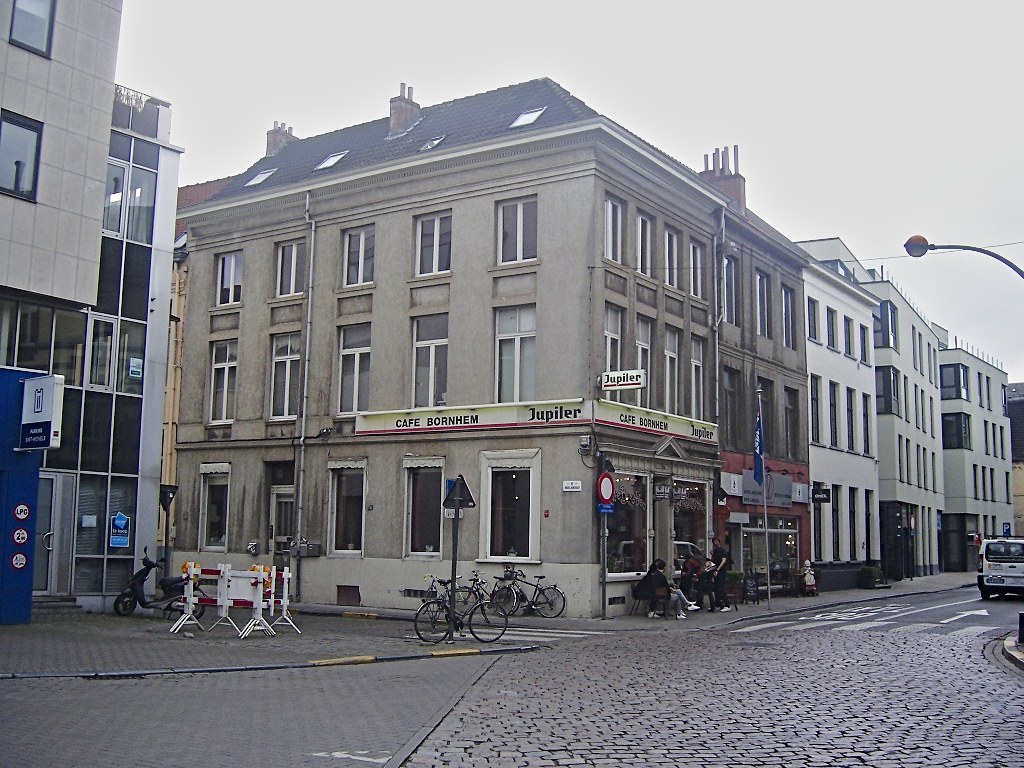
The guest list at Mrs Deene’s included not only those guys who were hoping to make it big and become professional cyclists but a few professionals who already had as proven by the winners sashes and dried up bouquets hung on the Dining Room walls: British Champion Keith Butler who had moved there in 1963 and German Rolf Wolfshohl among them, whilst four times World Pursuit Champion Hugh Porter was a regular visitor tuning up his speed prior to the World’s with a few weeks of kermesse racing.
However, not everybody had gone there to race, many just wanted to visit, soak up the atmosphere and watch some racing – visitors from Australia, New Zealand, America as well as those from the United Kingdom.
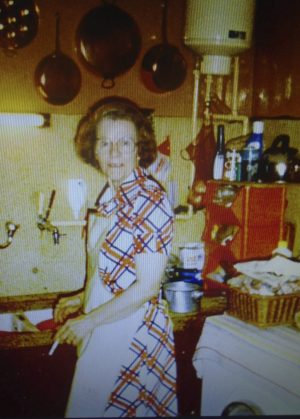
Mrs Deene was Welsh but married to George, a Flandrian solicitor she had met during the War. They lived nine miles outside the city in Zomergem, while ‘Ma’, her ancient Belgian mother-in-law lived on the ground floor of the Guest House in Gent
The Guest House comprised three floors at the front plus rooms in a fourth floor attic with a single storey block at the rear. Entry was from an alley to the side beside a very handy piece of wasteland which provided free parking. Coming in through the side door a corridor full of racing bikes ran to each side from the kitchen at the rear to the spiral staircase at the front with the dining room directly in front of this side door.
The day would begin with the guests coming down for breakfast to be greeted with a gruff ‘oef?’ from Ma – the only discernable word from the otherwise grumpy mutterings as the old bird shuffled around in her black mourning dress from which she never appeared to change. It is strange that given Flandrian’s understandable feelings about the French language and that the guests were almost entirely English speaking that she should be asking us if we wanted an ‘oef’ rather that an ‘egg’.
Mrs Deene would be dropped off by George after breakfast and then seem to spend the entire day chain smoking in her tiny kitchen at the back of the house.
There were races seven days a week but guests never knew where they were that day until Mrs Deene opened the Het Volk paper to see.
There was nearly always a race within 20 or so kilometers of Gent, always starting at 2pm and, for amateurs, always 110 kilometers in distance. It was helpful that the paper also said what the prize fund totaled.
After a morning preparing your bike which might involve a visit to Plum Vainqueur or Dossche Sport for something, lunch would be taken and, apart from fish on Friday, this was a very grey looking steak and rice – every day.
We would always ride out to the races together with the non-racing entourage of fellow guests, sign on, get changed in some complete stranger’s home and race. If there were bookmakers at the race it could be rather dispiriting to see odds they were offering on you, so best not to look.
And you had better be ready for the start, it was easy to get left behind doing up your toe straps and never get back onto to the back of the bunch!
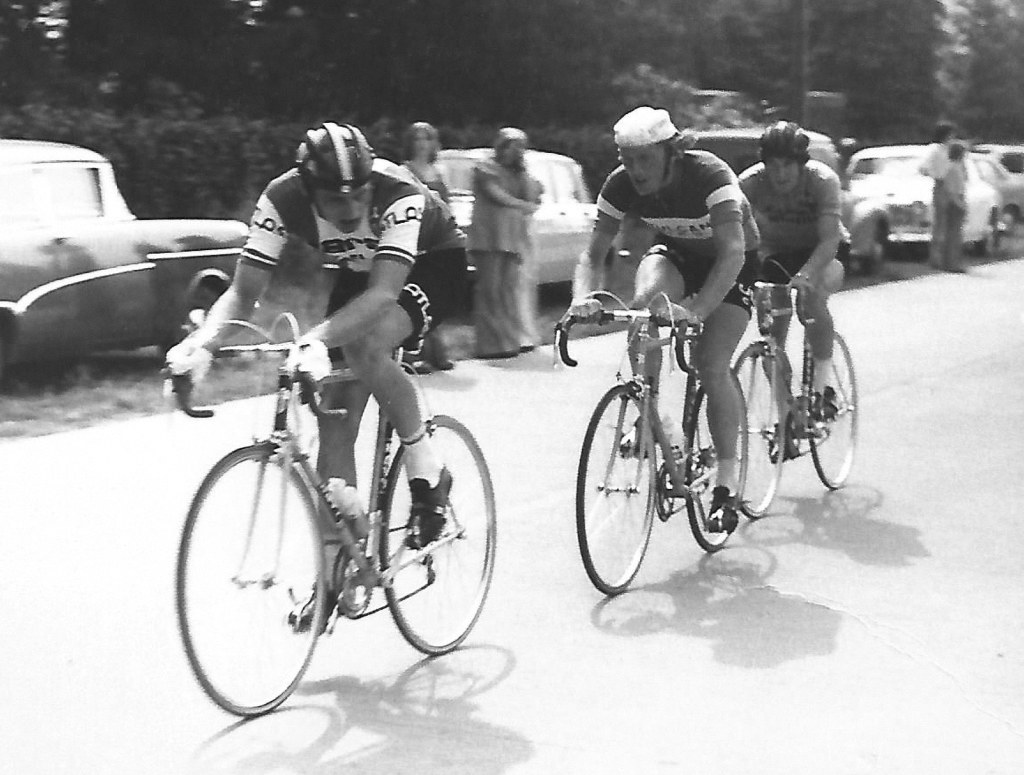
Even though the majority of races were on weekdays, the host town would be decked out with flags and bunting, often with a fairground and literally thousands of people; there could be up to 200 riders many of whom had no other form of income. There were guys who were winning so much they couldn’t afford to turn Pro and take a pay cut.
With prize money always going down to 20th place having an entourage outside a bar on the circuit was a great advantage, if you weren’t in the gold or likely to be so at the finish it might be better to quit and save your energy for tomorrow. It was also sometimes difficult to know exactly how you were doing in the race and easily possible to be in the leading group without knowing it.
Race over, and hopefully having remembered which house you had left your stuff, collected your brown envelope prize – plus once 10 kilograms of sugar from the local refinery sponsoring the race, it was the long, hard ride back to the digs, ‘pedaling squares’.
Shagged out but back in Gent half of one of the upper floors was given over to a huge communal shower room. Once showered, it was time for dinner – more very grey steak – but this time with salad.
Having finished dinner we then discussed what else we were going to eat. Maybe a small beer in the bar next door which always showed Coronation Street on the TV and then a walk across the old city to the Frite Shack in the Vrijdag Markt – still there today – for frites & mayonnaise?
Despite all of this food the life was so hard it was impossible to maintain your body weight.
We slept in spartan shared bedrooms, two or three to a room. Linoleum on the floor and old steel hospital type beds. The walls had been painted sometime in the 19th Century.
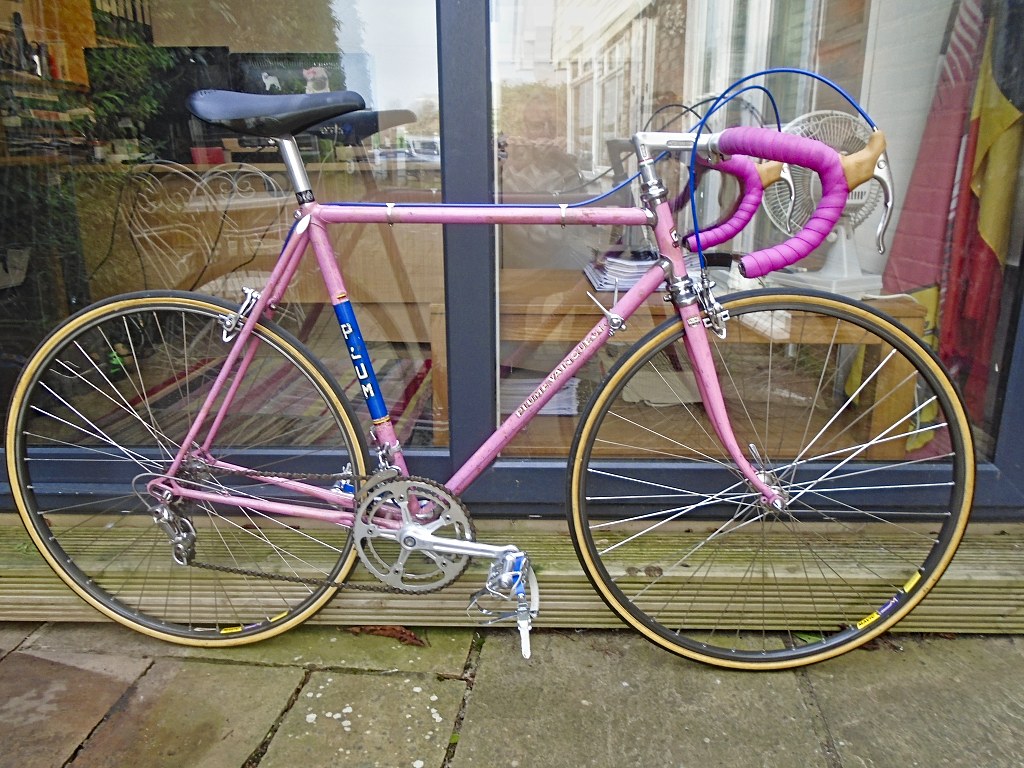
In my time regular visitors were Barry Hoban and Brian Jolly who was part of a trial by Raleigh to establish a British Pro Team in Belgium.
One of the non-racing guests was obsessed with Barry and every couple of days he would be sporting a latest acquisition from him. It started with a bidon then a jersey and eventually a whole Mercier bike was parked in the hallway. It was quite possible that he had even bought Barry’s underpants. For the rest of us, a photo or the occasional few words of encouragement sufficed.
* * *
Of course there were a few who talked-the-talk but didn’t quite race-the-race.
As Barry has said you would never believe that ‘the continent’ was only 21 miles away, but the racing was indeed a world away from the terminally boring – only start racing on the last lap – British scene.
In Belgium the race was ‘on’ from the moment the flag dropped and it was entirely possible to get dropped through the neutralised section before the start.
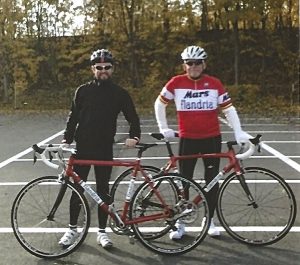
On days off Mrs Deene, after checking the Het Volk listings, would tell us where there was a Pro criterium, which we would ride out to, to watch.
If Eddy Merckx was riding the spectators would run into the road to touch him as he rode past.
Even if you were going to the supermarket on days off you would wear your track suit as it almost guaranteed that you would be ushered to the front of the queue – it was like being a priest in Ireland!
Racing four or five days a week as an amateur in Belgium was a real rollercoaster; great when you were winning plenty of prize money, tough when you were not.
And as kind as she was, and as reasonable as the board and lodging was, you had to be winning good money to survive, there was no sponsorship for British guys starting out.
Following the death of Ma, the Guest House in Sint-Michiels Straat was closed down with business now being fully transferred to Mr & Mrs Deene’s home in Zomergem which had hitherto been home and lodging only for a favoured few such as Barry Hoban who had moved there in 1965.



